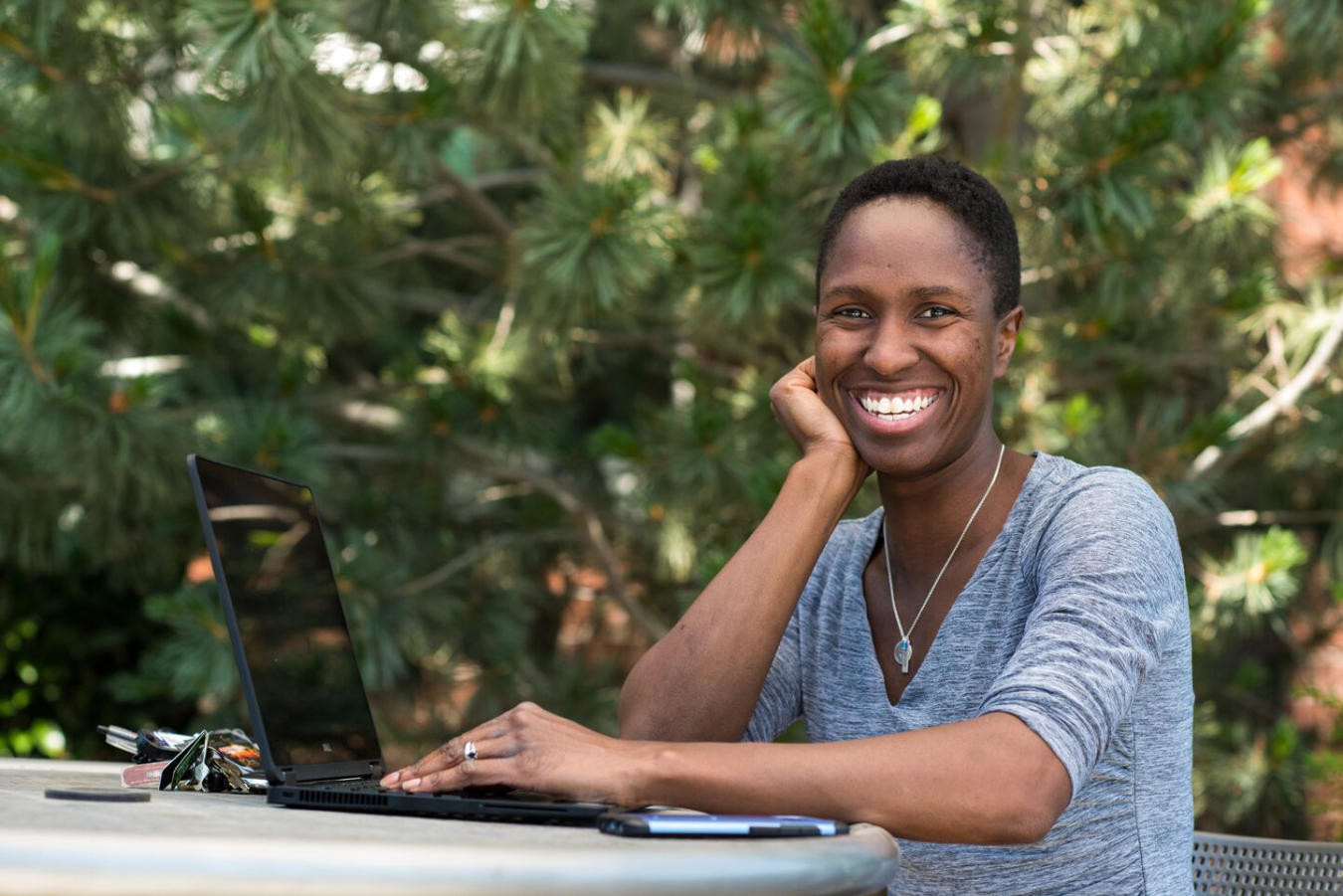As a materials scientist at Pacific Northwest National Laboratory (PNNL), Dr. Charmayne Lonergan works with glassy materials in the Radiological Materials Group of the Energy and Environment Directorate.
October 4, 2022
As a materials scientist at Pacific Northwest National Laboratory (PNNL), Dr. Charmayne Lonergan works with glassy materials in the Radiological Materials Group of the Energy and Environment Directorate. Her work focuses on glass formation in support of waste vitrification. Lonergan's expertise allows her to conduct projects in areas such as processing novel glass compositions and analysis of their properties, modeling of glass properties, and development of constraints for glass development. She also works as a science, technology, engineering, and mathematics (STEM) ambassador with PNNL’s Office of STEM Education, where she can engage the community and students in learning more about materials science. She earned her PhD in materials science and engineering from Missouri University of Science and Technology and an undergraduate degree in ceramic engineering from Clemson University.
What inspired you to work in STEM?
I’ve always been interested in how things work. When I was younger, I used to take things apart all the time, although I could never really put them back together properly. I’ve always had a questioning attitude and my parents really encouraged that trait in me while I was growing up. As I grew older, I found STEM was a great fit where I could ask big questions about the world and learn how to contribute to solutions. After all, STEM is really a process of diving into problem solving and the “why’s” of the world.
What excites you about your work at the Energy Department?
I find my work at PNNL exciting because it allows me to help contribute to finding solutions to very real, and very tangible problems. As I look at my work, there is no question in my mind that what I’m doing will benefit society and, really, that’s what I want to do every day. I want to contribute to improving society and our nation. This work also supports international efforts as well, which is deeply meaningful to me.
How can our country engage more women, girls, and other underrepresented groups in STEM?
That’s an interesting question. I think it’s important to recognize that just because doors may be open, it doesn’t mean that everyone knows where the doors are. I think it’s important to participate in outreach efforts to create awareness among groups and communities that may or may not be aware of the wide range of opportunities. Naturally, more scholarships and programs would be beneficial, but, in my mind, the problem still consists of whether people know these opportunities exist. You can have all the great programs in the world, amazing internships with full coverage and stipends…but if people don’t actually know they are available, it doesn’t make a significant difference to underrepresented groups. We need more leg work and socialization of information in communities. When we do that right, I think we’ll help create greater access to existing opportunities for people who are not yet aware those are even available.
Do you have tips you'd recommend for someone looking to enter your field of work?
Representation matters. It can be hard for people that don’t see themselves in certain areas. My recommendation is to never be afraid to be a trailblazer because you are never really alone. It can feel kind of scary and you may feel like you’re alone, but, to help that feeling, I highly recommend reaching out and finding mentors – try and find people that are there to support you and lift you up. When people tell you that your career trajectory is completely, 100% based on your performance or that it’s purely on you, that isn’t the whole truth. It is critical to perform well, do a great job, and have a reputation for quality but career progress can also be impacted by the conversations happening, and decisions being made, behind closed doors or when you’re not around. Having an advocate, ideally more than one, that will speak on your behalf and who is familiar with where you want to go and knows what your strengths are – that’s what you want to find and develop in your professional network.
When you have free time, what are your hobbies?
I enjoy photography and cooking – spending time with family is a high priority for me, as well.
Learn more about our programs and resources for women and girls in STEM at /women.

